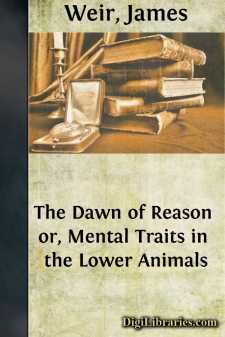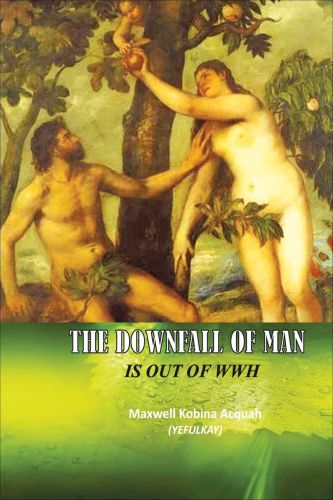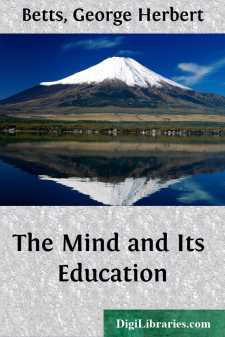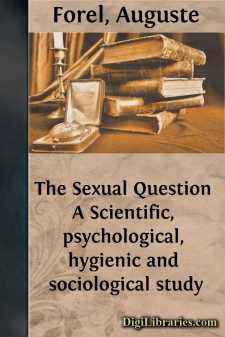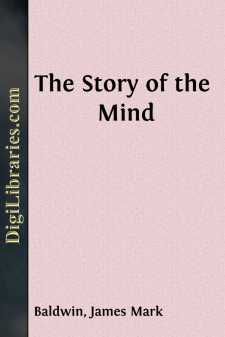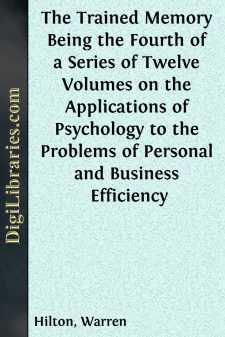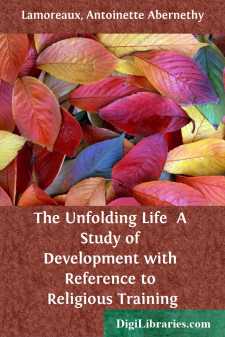Psychology
Psychology Books
Sort by:
by:
James Weir
The Senses in the Lower Animals The sense of touch—The senses of taste and smell—Actinophryans having taste—The sense of sight—Modification of sight organs by surroundings—Sight in Actinophryans—Blind fish sensitive to light—Blind spiders—Blind man—Primitive eyes in Cymothoe—In the jelly-fish, sea-urchin, Alciope, Myrianida—The sight organs of the snail—Power of vision in the...
more...
by:
Maxwell Acquah
THE DOWNFALL OF MAN - IS OUT OF WWH Every problem or challenges in life can be traced to principles found in the Bible. Every person, regardless of culture, family or ethnic background, religion, education, complexion, country of origin, position or social status, must either follow these principles or experience the consequences of violating them. Man is affected by what I called ‘‘the WWH...
more...
EDITOR’S INTRODUCTION The present volume appeals to the editor of this series as one of the most significant books, viewed from the standpoint of the future of our educational theory and practice, that has been issued in years. Not only does the volume set forth, in language so simple that the layman can easily understand, the large importance for public education of a careful measurement of the...
more...
THE MIND AND ITS EDUCATION THE MIND, OR CONSCIOUSNESS We are to study the mind and its education; but how? It is easy to understand how we may investigate the great world of material things about us; for we can see it, touch it, weigh it, or measure it. But how are we to discover the nature of the mind, or come to know the processes by which consciousness works? For mind is intangible; we cannot see...
more...
SENSES. Sight.—Light.—Five minutes after birth, slight sensibility to light (2). Second day, sensitiveness to light of candle (3). Sixth and seventh days, pleasure in moderately bright daylight (3, 4). Ninth and tenth days, sensitiveness greater at waking than soon afterward (3). Sleeping babes close the eyes more tightly when light falls on the eyes (4). Eleventh day, pleasure in light of candle...
more...
CHAPTER IINTRODUCTION Science. Before attempting to define psychology, it will be helpful to make some inquiry into the nature of science in general. Science is knowledge; it is what we know. But mere knowledge is not science. For a bit of knowledge to become a part of science, its relation to other bits of knowledge must be found. In botany, for example, bits of knowledge about plants do not make a...
more...
by:
Auguste Forel
THE REPRODUCTION OF LIVING BEINGS History of the Germ:—Cell-division—Parthenogenesis—Conjugation—Mneme—Embryological Development— Difference of the Sexes—Castration—Hermaphrodism— Heredity—Blastophthoria. A general law of organic life decrees that every living individual is gradually transformed in the course of a cycle which is called individual life, and which terminates with...
more...
PREFACE. In this little book I have endeavoured to maintain the simplicity which is the ideal of this series. It is more difficult, however, to be simple in a topic which, even in its illustrations, demands of the reader more or less facility in the exploration of his own mind. I am persuaded that the attempt to make the matter of psychology more elementary than is here done, would only result in...
more...
by:
Warren Hilton
Chapter I Four Special Memory Processes You have learned of the sense-perceptive and judicial processes by which your mind acquires its knowledge of the outside world. You come now to a study of the phenomenon of memory, the instrument by which your mind retains and makes use of its knowledge, the agency that has power to resurrect the buried past or power to enfold us in a Paradise of dreams more...
more...
INTRODUCTION Having read with much care the proof sheets of this book, I am prepared to say three things about it, and it gives me pleasure to say them here. THE BOOK IS WELL NAMED. "THE UNFOLDING LIFE." Turn which way we will, we see life unfolding all about us, and yet how faintly are its mysteries understood! And is it not the one thing above all others, which teachers, mothers, fathers and...
more...


